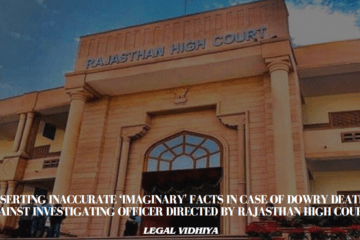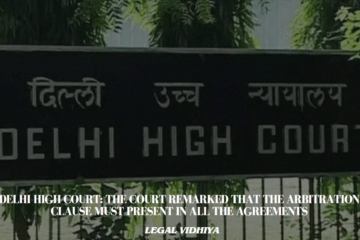
In a recent ruling, the honorable Supreme Court through a bench comprising of Justice Aniruddha Bose and Justice Sanjay Kumar opined that even if a charge sheet has been filed, the High Court could still examine if the offenses alleged to have been committed were prima facie established based on the FIR, charge sheet, and other relevant documents.
Briefly, the appellant filed a criminal writ petition in the High Court of Uttarakhand at Nainital seeking to quash an FIR alleging offenses punishable under Sections 420 and 409 of the Indian Penal Code, 1860, related to financial irregularities detected in a Cooperative Bank where the appellant served as a Branch Manager. The High Court dismissed the quashing petition on the grounds that a charge sheet had been submitted after the filing of the quashing petition, leading the High Court to conclude that the criminal writ petition had become infructuous.
The court disagreed with the reasoning provided by the High Court for dismissing the writ petition of the appellant, considering the precedent set by this court in the case of Joseph Salvaraj A. vs. State of Gujarat & Ors. reported in 2011 (7) SCC 59. In that case which involved around quashing plea of an FIR where a charge sheet was submitted after the petition under Section 482 of Crpc, a coordinate bench of this court opined that even after filing a charge sheet, the court could still examine whether the alleged offenses were prima facie established based on the FIR, charge sheet, and other relevant documents.
Thereby the present appeal was allowed, the impugned order was set aside and the matter was remanded back to the High Court. The High Court should proceed to hear the criminal writ petition on merits and the court also directed that based on materials disclosed before them, the appellant should not be arrested for the offenses alleged in the said FIR until decision on said petition is decided on merit, unless circumstances arise before the High Court indicating that the appellant’s detention is necessary due to developments occurring after the filing of the charge sheet. The said direction was issued in the exercise of the honorable court’s jurisdiction under Article 142 of the Constitution of India. Any pending application(s) regarding the same were ordered to stand disposed of.
CASE NAME: Mamta Shailesh Chandra Vs The State of Uttarakhand & Ors.
Name: Riddhi Gupta, Course: BALLB, College: Vivekananda Institute Of Professional Studies, Intern Under Legal Vidhiya.
Disclaimer: The materials provided herein are intended solely for informational purposes. Accessing or using the site or the materials does not establish an attorney-client relationship. The information presented on this site is not to be construed as legal or professional advice, and it should not be relied upon for such purposes or used as a substitute for advice from a licensed attorney in your state. Additionally, the viewpoint presented by the author is of a personal nature.




0 Comments